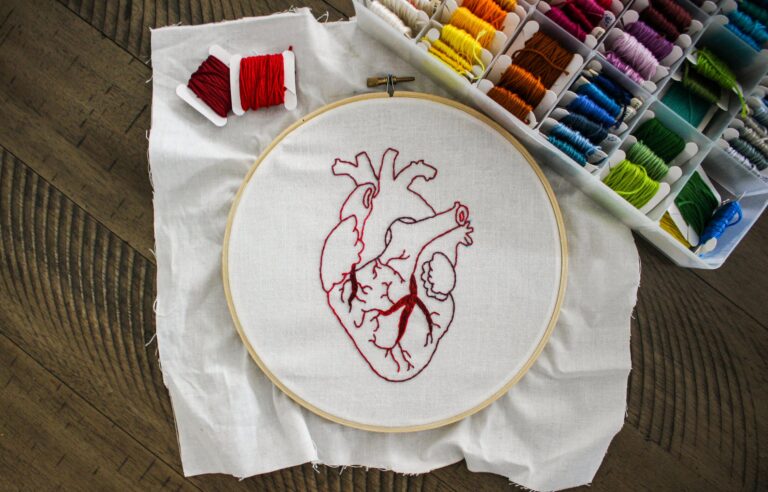
Your heart is an incredible organ with mammoth responsibility. If you think of your body as a symphony, your heart is the conductor, sending vital energy and life to all the players – your organs. When the conductor has faulty tools, the potential for error increases and the same occurs in the human body.
In most cases, heart disease is a culmination of what begin as minor problems that eventually come to collide, and result in a meltdown for your heart.
Heart disease occurs when fats and cholesterol thickens your artery walls, hindering blood flow through the arteries to your organs and tissues. This results in a build up of plaque which can eventually cause a blood clot that has the potential to block the flow of blood to the brain or heart and in some cases, result in death.
This all sounds a bit alarming, but don’t stress. If you’re concerned about the health of your heart, or you’re in good health and want to stay on the straight and narrow, there are a number of remedies for protecting your ticker against the risk of heart disease.
Move your body!
There are a myriad of ways in which exercise can help your cardiac health and the NHS states that even as little as 10 minutes of brisk walking each day counts as exercise. Combining aerobic workouts and strength training is widely considered to be the best means of exercise for the heart.
Working out in this way improves the muscles’ capability of extracting oxygen from circulating blood and in turn, this reduces the need for the heart to work harder in pumping blood to your muscles.
Exercise encourages physiological changes like triggering the arteries in your heart to dilate with more ease – it can also aid your sympathetic nervous system (that which is responsible for blood pressure and heart rate) to be less responsive.
Fuel your heart with the right foods
A bad diet isn’t just bad for your waistline – in the long term, it can damage your heart health. The worrying thing is, the consequences of a bad diet don’t always manifest until things become very advanced.
Extensive studies have shown us that saturated fat and trans fats can raise the amount of cholesterol in the blood, which contributes to the accumulation of fat in your arteries. A diet high in salt is also inextricably linked to high blood pressure, which in turn, will put you at risk of coronary heart disease.
Ditch the cigarette
The British Heart Foundation states that if you are a smoker, quitting smoking is the most essential step you can implement to protect your heart. If you’re unsure exactly how smoking affects your heart, here goes.
When you smoke, the chemicals in cigarettes render the walls of your arteries sticky, allowing fatty material to stick tenaciously to them overtime. When the arteries carrying blood to the heart get damaged, a heart attack can occur; respectively, when this happens to the brain, it results in a stroke.
The toxic mix of chemicals that cigarettes contain are a disaster for your heart. The carbon monoxide in your blood will hinder your circulation, whilst the nicotine works to increase your blood pressure, which can permanently damage your arteries if left untreated.
If you take anything at all away from this piece, make sure it’s the extreme danger smoking has on your heart.
Keep the stress at bay
Many people pooh-pooh the idea that stress can cause ill health of any kind and here in the U.K the ‘Keep Calm, Carry On’ philosophy may be negatively contributing to people’s propensity to soldier on, even when they’re intensely stressed.
Unfortunately, this can have devastating consequences on cardiac health. When you’re stressed, the body responds by releasing the hormone cortisol, which is said to increase your blood pressure, cholesterol, sugar levels and triglycerides (fats in your blood).
If this is allowed to continue in the long term, it can put you at serious risk of heart disease, heart attacks and death.
Keeping an eye on the triggers for stress is an essential step in preventing a stress-induced heart attack or stroke and these vary from anxiety, anger and depression to forgetfulness, lack of sleep, appetite and aches and pains.
If you are struggling to control your stress levels, reach out to your doctor, who can help you put together a tailored plan that suits your day-to-day commitments.
Medication
In cases where lifestyle changes such as those listed above aren’t extreme enough to lessen your risk of heart disease, or you’re over the age of 60, you may be prescribed certain medication. The most common medications for preventing heart-related illnesses are:
Statins – lower cholesterol.
Aspirin and Warfarin – prevent blood clots.
Beta-blockers – treat angina, lower blood pressure and can prevent further heart attacks.
Calcium channel blockers – treat rapid heartbeat, hypertension and high blood pressure.
Your heart is arguably your most precious organ – guard it with your life!



I used to smoke a lot when I was younger and the doctors told me how bad my health is becoming and how the risk of heart disease and lung cancer could increase, so I told myself I had to quit one way or another, eventually I did and now im eating clean and exersising everyday!
Not being stressed during this pandemic has been quite hard, but luckily Ive always had someone by my side. I will look to implement these tips if Im ever unfortunate to be diagnosed with heart disease.